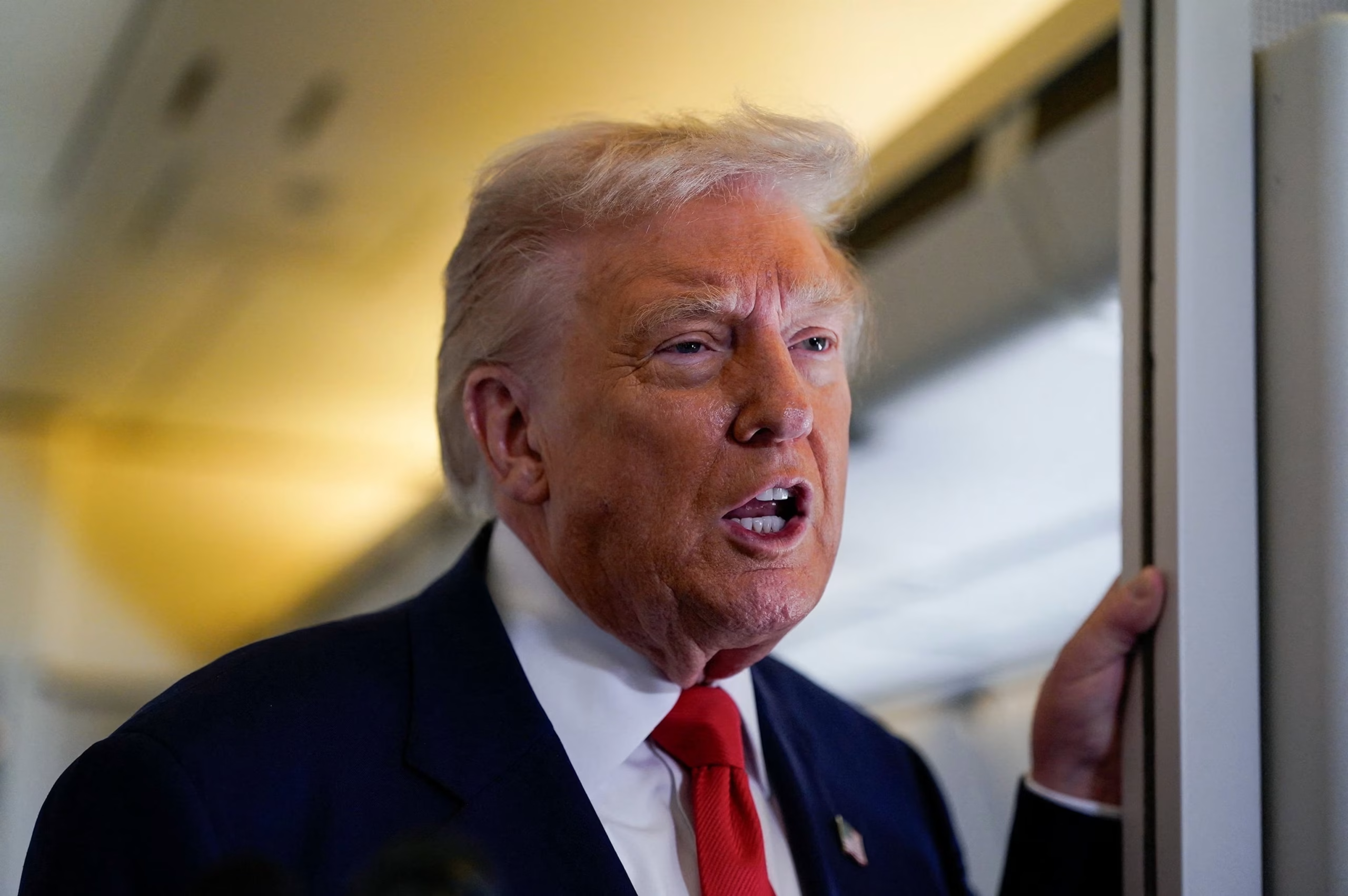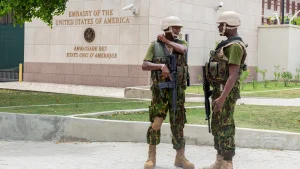On November 16, 2025, President Donald Trump announced that he intends to meet with New York City Mayor-elect Zohran Mamdani and that the two would “work something out.” The comments, made as the president prepared to return to Washington after a weekend in Florida, mark a notable shift in tone from the often combative rhetoric that has characterized their public relationship. “The mayor of New York, I will say, would like to meet with us and we’ll work something out. We want to see everything work out well for New York,” Trump told reporters, signaling a willingness to explore collaboration despite their previous disagreements.
Zohran Mamdani, 34, won election as New York City’s mayor earlier this month, positioning himself as a progressive voice and a self-described democratic socialist. He is set to be sworn in on January 1, 2026, becoming the city’s first Muslim and Indian-American mayor, as well as its youngest in over a century. Mamdani’s election represents a generational shift and the growing influence of younger progressive leaders within the city and national political landscape. His campaign focused on issues such as affordability, social welfare, and immigration, drawing sharp contrasts with Trump’s policies.
During the campaign, Mamdani directly criticized the Trump administration on multiple fronts, particularly immigration and law enforcement practices. He framed his victory as an ideological statement for New Yorkers seeking change. In his victory speech, he addressed Trump directly, emphasizing that he intended to bring a new voice to city leadership and challenging the former president’s approach to governance.
Trump, in turn, had publicly criticized Mamdani, often questioning his policies and political ideology. He repeatedly labeled Mamdani a threat to the city, casting him as a radical whose progressive agenda could jeopardize New York’s stability. At times, Trump’s rhetoric included sharp personal attacks, reflecting a broader pattern of adversarial engagement with political opponents. The announcement of a potential meeting represents a departure from this antagonistic stance and opens the door to a more pragmatic interaction between the federal government and New York City’s incoming leadership.
Mamdani’s team confirmed that they have reached out to the White House to arrange a meeting. He emphasized that his responsibility as mayor requires engaging with all parties if it benefits the city’s residents. Key issues he intends to raise include the cost-of-living crisis, housing affordability, social welfare programs, and immigration enforcement. Mamdani has stressed that a cooperative relationship with the federal government is essential to addressing these challenges effectively.
From the president’s comments, it is clear that he is signaling at least a willingness to engage constructively. “We want to see everything work out well for New York,” Trump said, indicating that despite past confrontations, there may be room for dialogue and cooperation. No specific date for the meeting has been set, and the agenda has not been publicly outlined. However, the announcement alone carries implications for the city, the federal government, and the broader political landscape.
Why This Meeting Matters
The anticipated meeting holds significance on multiple levels, both practical and political.
From a functional standpoint, New York City depends heavily on federal funding and policy support in areas such as housing, social welfare, transportation, and immigration enforcement. A cooperative relationship between the mayor and the president could facilitate smoother interactions, prevent costly conflicts, and help the city advance its agenda.
Politically, the potential meeting demonstrates pragmatism over pure ideology. Mamdani has positioned himself as a progressive challenger, while Trump has built his political brand on being uncompromising and combative. Engaging with a declared socialist mayor-elect of New York City may signal Trump’s willingness to negotiate even with ideological opponents. For Mamdani, participating in a meeting with Trump shows that he is willing to work across divides to secure results for the city.
This development also reflects broader trends in American politics, including generational shifts and the rise of younger progressive leaders. Mamdani’s election has been widely interpreted as part of a movement that seeks to reshape Democratic politics, with implications for both state and national governance.
Key Issues Likely to Be Discussed
While no official agenda has been released, several pressing matters are likely to dominate the discussion:
-
Housing Affordability: Mamdani has highlighted the housing crisis as a central concern, with rising rents and a shortage of affordable units affecting millions of residents. He may push for federal support to expand affordable housing and provide assistance to low- and middle-income families.
-
Social Welfare Programs: Cuts to programs such as SNAP have been a point of concern for Mamdani, who may advocate for reversing these reductions and expanding resources to support vulnerable populations.
-
Immigration Enforcement: Mamdani has criticized past federal policies on immigration and may seek assurances regarding the deployment of federal resources in the city, including ICE operations and funding for related enforcement measures.
-
Federal Funding and Oversight: New York City relies on federal funding for infrastructure, disaster relief, transportation, and other essential services. Ensuring continuity in these programs may be a key goal for the meeting.
-
Symbolic Leadership and National Optics: Both leaders are aware of the political symbolism in a meeting. Mamdani may use the engagement to demonstrate his ability to negotiate effectively, while Trump could frame the meeting as evidence of his capacity to work across ideological lines.
Potential Risks and Challenges
Despite the promise of a meeting, several risks remain:
-
Persistent Policy Differences: Mamdani’s progressive agenda contrasts sharply with Trump’s priorities. While a meeting could open dialogue, substantive alignment on major issues is unlikely to be immediate.
-
Timing and Expectations: No date has been set, and the absence of a clear agenda raises the possibility of misunderstandings or unmet expectations.
-
Political Backlash: Both leaders face the potential for criticism. Trump could be accused of compromising with a socialist mayor-elect, while Mamdani could face criticism from his base if perceived as too conciliatory.
-
Media Scrutiny: Every aspect of the meeting will be closely monitored, and both leaders must carefully manage public perception.
-
Implementation Challenges: Any agreements reached will need careful execution to translate into meaningful outcomes for housing, social welfare, and other critical areas.
Historical Context
Mamdani’s election was a surprising upset to many, signaling a shift in the political landscape of New York City. His victory was seen as emblematic of younger, more progressive forces rising within the Democratic Party. During the campaign, Mamdani positioned himself as a critic of Trump’s policies, particularly regarding inequality, immigration, and corporate influence.
Trump, meanwhile, engaged in a campaign of public criticism, at times threatening to withdraw federal funds and questioning Mamdani’s leadership. The announcement of a potential meeting now suggests a pragmatic recalibration, with both sides recognizing the need for engagement to address pressing issues affecting the city.
Possible Outcomes
Several scenarios could emerge from a meeting between Trump and Mamdani:
-
Symbolic Engagement: The meeting could primarily serve as a public demonstration that ideologically opposed leaders can sit down and engage without necessarily achieving substantive policy outcomes.
-
Targeted Cooperation: Both sides could agree on specific areas for collaboration, such as housing, social welfare, or immigration-related initiatives, resulting in modest but tangible benefits.
-
Long-Term Partnership: A more successful outcome could involve establishing a framework for ongoing collaboration between the city and the federal government, potentially shaping policy and governance in New York City for years to come.
-
Renewed Tensions: If the meeting fails to yield agreements or if either side perceives bad faith, tensions could resurface, reinforcing the adversarial dynamic that characterized their relationship prior to the announcement.
Stakes for the Leaders
For Zohran Mamdani, the stakes are significant. As a newly elected mayor with ambitious goals, securing early cooperation from the federal government could enhance his credibility and effectiveness. Achieving measurable results in areas such as housing and social welfare would demonstrate his capacity to navigate complex political landscapes. At the same time, he must maintain his progressive identity to retain the support of his base.
For President Trump, engaging with Mamdani presents both opportunities and risks. Successfully negotiating with a political opponent could enhance his reputation as a pragmatic leader capable of bipartisan engagement. However, he must balance this against the potential for criticism from his political supporters, who may view collaboration with a socialist mayor-elect as a compromise of principles.
Conclusion
President Trump’s announcement that he plans to meet with Mayor-elect Zohran Mamdani represents a potentially important moment in federal-city relations. The two men, previously engaged in sharp ideological and rhetorical battles, are now signaling a willingness to explore dialogue and cooperation.
While the phrase “we’ll work something out” leaves many details uncertain, the meeting offers an opportunity to address pressing issues affecting New Yorkers, including housing affordability, social welfare programs, and immigration enforcement. The outcome will depend on both leaders’ ability to translate dialogue into concrete policy action, manage political risks, and navigate the expectations of their respective constituencies.
As the meeting date is yet to be announced and the agenda remains unclear, observers will be watching closely. How this engagement unfolds could influence the trajectory of New York City governance, the perception of both leaders, and the broader dynamics of American politics. Whether this represents a meaningful shift toward constructive collaboration or a temporary détente will become clear only in the weeks and months ahead.

James Jenkins is a celebrated Pulitzer Prize-winning author whose work has reshaped the way readers think about social justice and human rights in America. Raised in Atlanta, Georgia, James grew up in a community that instilled in him both resilience and a strong sense of responsibility toward others. After studying political science and creative writing at Howard University, he worked as a journalist covering civil rights issues before dedicating himself fully to fiction. His novels are known for their sharp, empathetic portraits of marginalized communities and for weaving personal stories with broader political realities. Jenkins’s breakout novel, Shadows of Freedom, won national acclaim for its unflinching look at systemic inequality, while his more recent works explore themes of identity, resilience, and the fight for dignity in the face of oppression. Beyond his novels, James is an active public speaker, lecturing at universities and participating in nonprofit initiatives that support literacy and community empowerment. He believes that storytelling is a way to preserve history and inspire change. When not writing, James enjoys jazz music, mentoring young writers, and traveling with his family to explore cultures and stories around the world.









